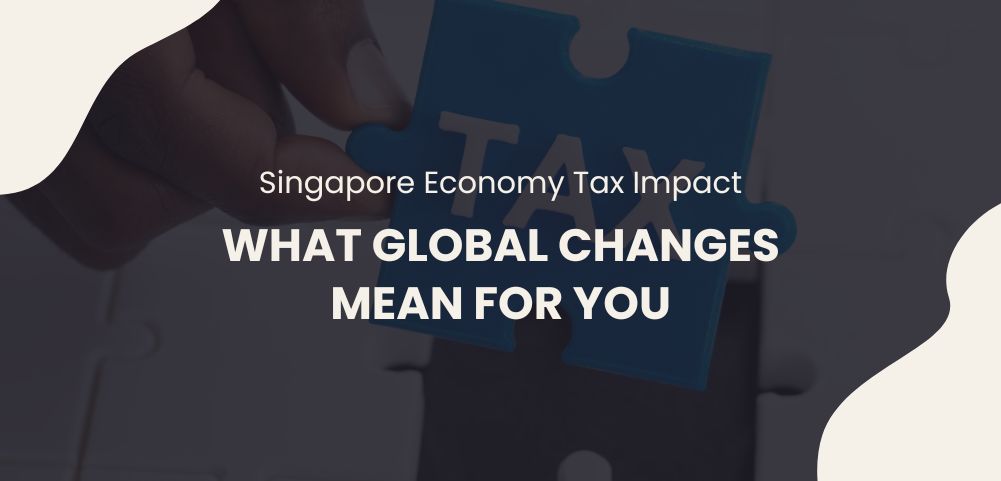Global Tax Changes and How They Could Impact Singapore’s Economy
by Elvis Low April 07, 2025

The Singapore economy faces growing uncertainty due to global tax changes—especially those driven by countries like the United States and initiatives like the OECD’s Global Minimum Tax. While these changes may seem far removed, their effects ripple through international trade, local hiring trends, and even the cost of your bubble tea.
In this article, we break down how global tax shifts could affect Singapore’s economy—and why every entrepreneur, job seeker, and everyday Singaporean should care.
What Might Happen to the Singapore Economy?
Global tax shifts don’t happen in isolation. As a key financial and trading hub, Singapore is highly sensitive to changes in global economic policies.
Here’s how Singapore might be affected:
-
Slower economic growth due to reduced global demand
-
Hiring freezes and retrenchments as companies try to manage higher operating costs
-
Less foreign investment, as global businesses seek cheaper markets
-
Rising costs for local businesses, impacting supply chains and operations
-
Higher consumer prices, as costs get passed down to customers
Learn more about how Singapore’s economy relies on global trade
Less Trade = Less Business
Singapore’s open economy thrives on international trade. If U.S. and European markets reduce imports due to higher taxes or tighter policies, local companies exporting to these regions will feel the hit.
TLDR: Lower demand → lower earnings → cost-cutting measures → economic slowdown.
Hiring Freeze or Downsizing
When companies earn less, they start reducing expenses, and unfortunately, that includes headcount.
-
No new hiring
-
Slowed promotions
-
More contract and part-time roles
-
Delayed offers for fresh graduates
This could especially hit sectors like finance, logistics, and tech.
Foreign Investors May Rethink Singapore
Higher global taxes could make Singapore less attractive to multinational corporations looking for tax efficiency.
Companies might:
-
Move operations to lower-cost countries
-
Scale down regional HQ activities
-
Delay launching new projects in Singapore
This reduces job opportunities and innovation within our economy.
Related reading: Why global companies choose Singapore – and what’s changing
Local Businesses Feel the Pinch
Even if you’re not in international trade, your favorite local café or bubble tea shop may soon feel the pressure.
Why?
-
Higher costs from suppliers and delivery partners
-
Increased rental from property owners passing on operating expenses
-
Shrinking margins, meaning smaller portions or higher menu prices
Everyday Cost of Living May Rise
The ripple effects don’t stop at businesses. Everyday Singaporeans will feel it too:
-
Food and drink prices up
-
Electronics and gadgets more expensive
-
Training and school fees may rise
-
Rental rates might increase
Inflation may climb—not because of local policy—but due to global economic shifts.
What Can You Do?
While these shifts are global, your financial resilience starts locally. Here are a few steps you can take:
-
Upskill in digital tools, marketing, and creative business solutions
-
Learn budgeting and personal finance strategies (check out our Money Management Workshop)
-
Start exploring flexible income streams or side hustles
Singapore Is Small, But We Can Think Big
Global tax reforms are complex, but their impact on the Singapore economy is very real. It’s not just a news headline—it’s your job, your rent, your coffee, and your future.
Don’t wait for the economy to change—future-proof yourself with practical skills today.
. . . . .
